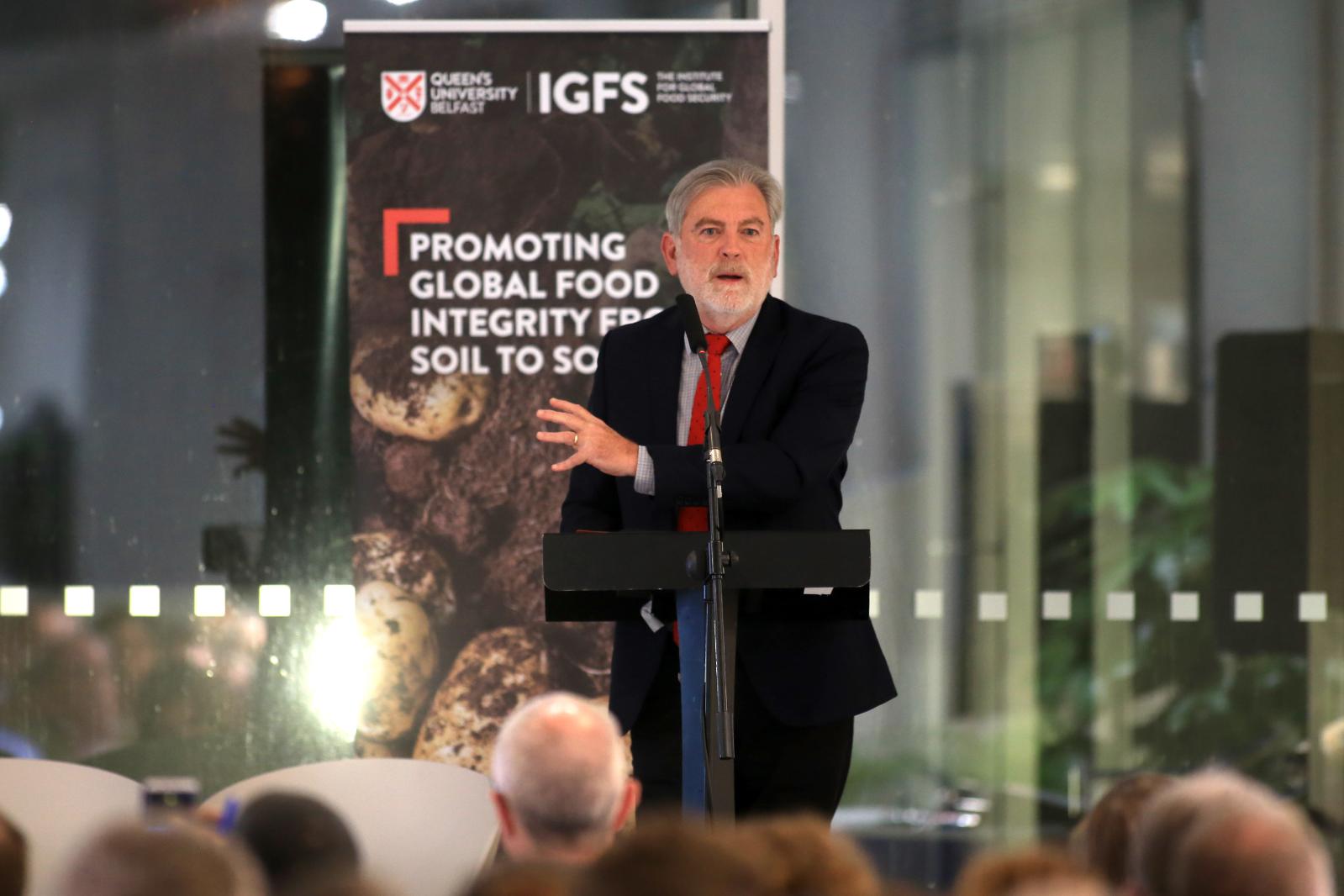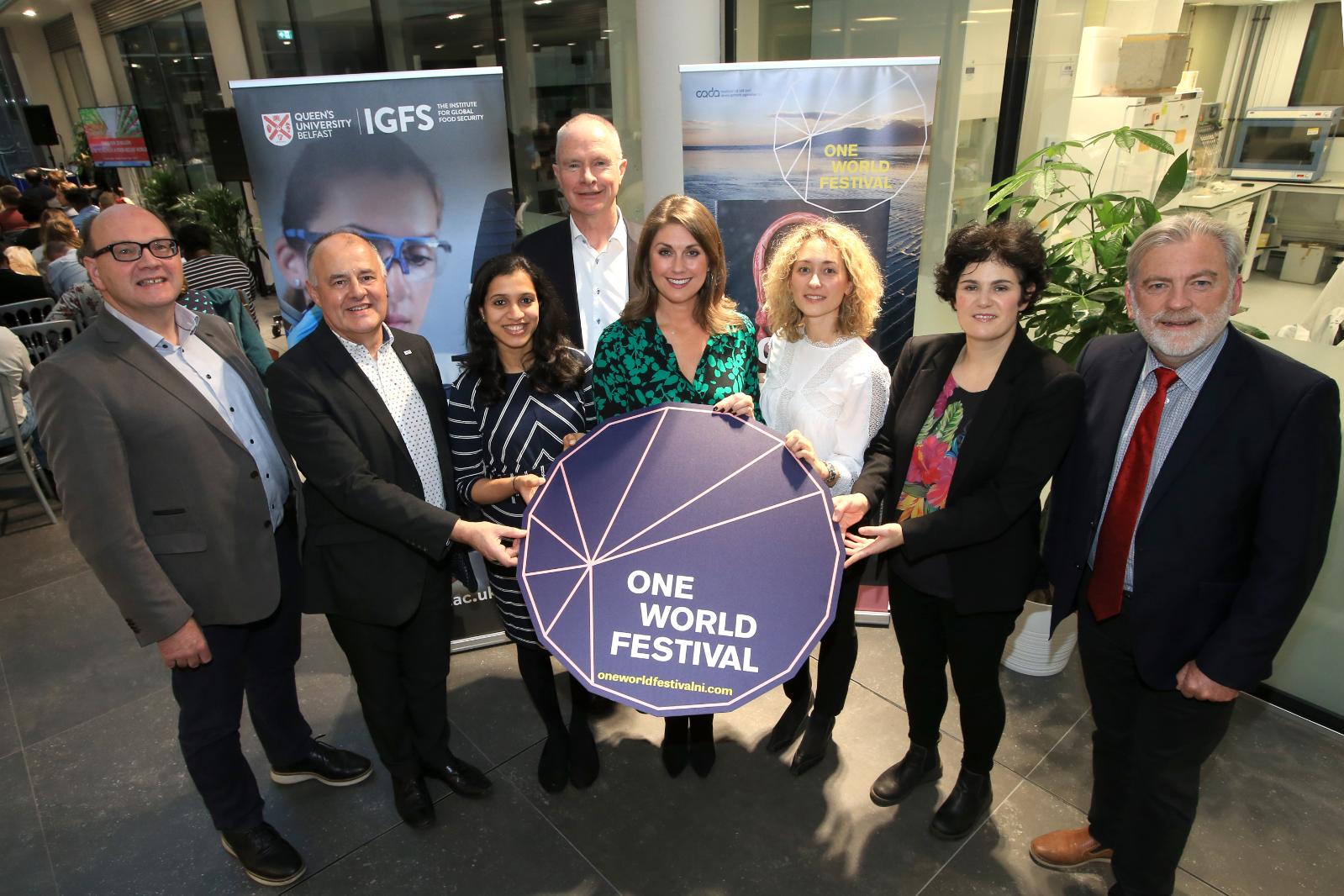Farming holds key to food-secure future if governments invest wisely
The concept of farmers as “custodians of the environment” may be new, but it is crucial for creating a food-secure future for a global population, a leading commentator has argued

Professor Glenn Denning of Columbia University NY said only by farmers taking on extra responsibility could we ‘save the planet’ in time, and that society – academic researchers, governments, NGOs – needed to support and steer farmers in this new direction.
 He said investment was needed, quickly and accurately, by governments to make sure the farming of the future was “conservation farming” and “precision farming”, guided by “climate-smart practices”.
He said investment was needed, quickly and accurately, by governments to make sure the farming of the future was “conservation farming” and “precision farming”, guided by “climate-smart practices”.
“For example,” he said, “there has been increased flooding in various parts of the world in recent years which is bad news for rice crops. Scientists, however, have been able to develop a new gene which has produced new varieties of submergence-tolerant rice, and this is now being farmed in parts of India and Bangladesh.
“In other places, such as Malawi, farmers need carefully targeted government subsidies to allow them to close the ‘yield gap’. These farmers are simply too poor to buy the fertilisers they need; nor can they borrow from the banks because of high interest rates. These kinds of situations need urgent investment.”
In other countries, the priority was switching to low/no tillage and reducing post-harvest losses. “Around 14% of the food that’s produced never gets to the retailer – that’s before all the food waste that happens at the consumer end,” he added.
Prof Denning was giving the keynote address at an event run by IGFS in partnership with the Coalition of Aid Agencies in Northern Ireland (CADA), ‘Table for 10 Billion: How To Achieve a Food-Secure World’, which launched the inaugural One World Festival in NI.
Prof Denning teaches and researches at Columbia University’s School of International and Public Affairs where his specialisms are Global Food Systems and Sustainable Development.
Over the past 40 years, he has advised governments and other organizations on agriculture and food policy in more than 50 countries. He served on the UN Millennium Project Hunger Task Force (2004-6) and the Senior Steering Group of the UN High Level Task Force on the Global Food Security Crisis (2009-13) and remains a Senior Policy Advisor for the UN Sustainable Development Solutions Network.
He said people were confused about what to do or how they could help resolve the food and environmental crisis, flitting between single-issues like ‘We need to reduce food waste’, ‘We need to eat less meat’ and ‘We need to stop plastic pollution’.
“The reality is, we need to do all of these things, and do them together,” he said. “What we need is sustainable intensification.
“It’s not rocket science – we have all the knowledge we need. What we need to do is invest pro-actively and strategically or we face the catastrophe of famine and extreme environmental degradation we have all been warned about.”
He added it was important to “emphasise the positive” and bring governments on board by pointing out the benefits. “If we invest properly in true food security, we nourish and prosper our world. It leads to better economies and safer societies with less conflict.”
Responding to his points was a panel comprising Dr Martina Bozzola, an agricultural economist from IGFS; Owen Brennan OBE, from Devenish Nutrition; and Anushree Rao, from Concern Worldwide (UK).
The event was introduced by the SDLP MLA for South Belfast, Claire Hanna, and Peter Anderson. Mr Anderson is an expert in international development and the NI Director of Concern Worldwide. Claire Hanna is Chair of the NI Assembly All Party Group on International Development. The MC for the evening was local broadcaster, Sarah Travers.
Click through for more details on the One World Festival. To see more pictures from this event, visit the IGFS Flickr account
